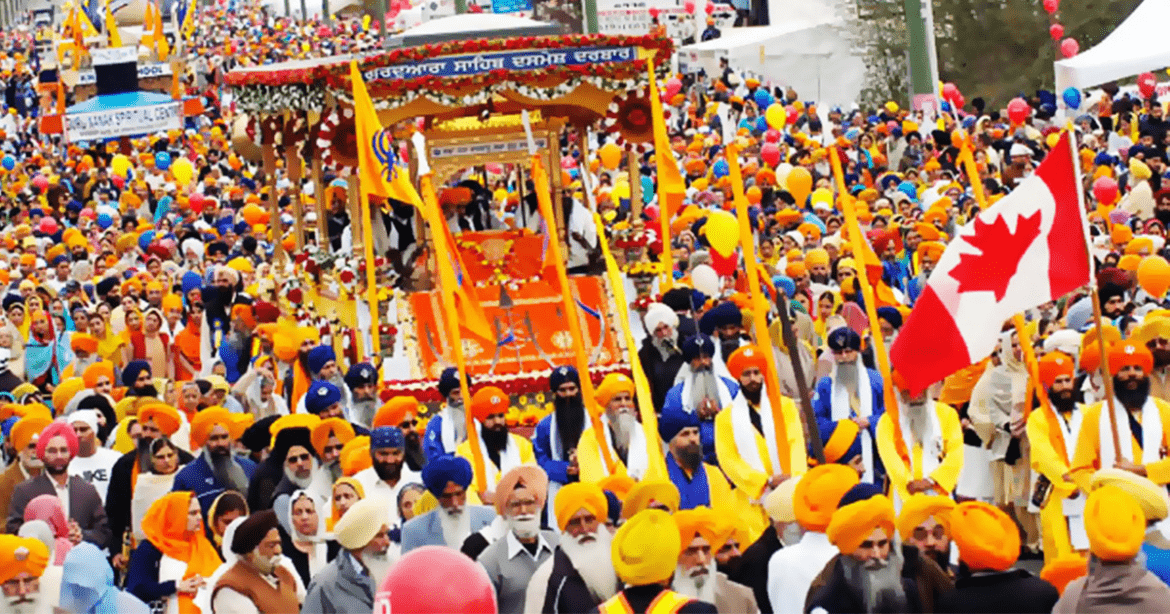AI Generated Summary
- So, as the streets fill with music, colour, and the spirit of togetherness, let us take a moment to appreciate the significance of Vaisakhi and the contributions of Canada’s Sikh community.
- In Canada, Vaisakhi is not only a time for Sikhs to celebrate their faith and culture but also to reflect on their community’s contributions to the country.
- Vaisakhi parades, or Nagar Kirtans, are a staple of the celebrations, with the Punj Pyaare leading the procession and a decorated float carrying the revered Sikh scripture, Sri Guru Granth Sahib, following closely behind.
As spring blooms across Canada, the vibrant and spirited Vaisakhi celebrations of the Sikh community are also in full swing. This ancient harvest festival holds immense significance for Sikhs, marking the founding of the Khalsa order by Guru Gobind Singh in 1699. But beyond the joyous parades and colourful festivities, Vaisakhi offers a valuable opportunity to explore the history, values, and contributions of Canada’s Sikh community.
Vaisakhi parades, or Nagar Kirtans, are a staple of the celebrations, with the Punj Pyaare leading the procession and a decorated float carrying the revered Sikh scripture, Sri Guru Granth Sahib, following closely behind. The Sikh community comes together, singing hymns, performing martial arts, and offering free food to all, regardless of religious or cultural background. These events not only showcase the richness of Sikh culture and faith but also promote interfaith harmony and understanding.
The founding of the Khalsa order on Vaisakhi Day in 1699 was a turning point in Sikh history. Guru Gobind Singh introduced the Nash doctrine, which emphasized renouncing considerations of caste, religion, superstition, clan, and profession in interactions with others. Through this, Sikhs established a sovereign identity distinct from traditional society, embodying values of service, equality, and compassion.
On this day, Sikhs were also called upon to adopt the Sikh Articles of Faith, which include the Kes, Kangha, Kara, Kirpan, and Kacchera. These articles symbolize a public commitment to the Khalsa, its principles, and a readiness to serve. Today, they continue to serve as powerful reminders of the community’s dedication to their faith and values.
In Canada, Vaisakhi is not only a time for Sikhs to celebrate their faith and culture but also to reflect on their community’s contributions to the country. With a rich history of immigration, Canadian Sikhs have played a significant role in shaping the nation’s cultural mosaic. Through their involvement in various fields, from business and politics to arts and academia, Sikhs have made lasting impacts on Canadian society.
Vaisakhi serves as a time for introspection and renewal of commitment to Sikh values and community service. Canadian Sikhs embrace this opportunity to deepen their connection to their faith and heritage, while also fostering understanding among fellow Canadians.
So, as the streets fill with music, colour, and the spirit of togetherness, let us take a moment to appreciate the significance of Vaisakhi and the contributions of Canada’s Sikh community. In doing so, we continue to promote unity, inclusivity, and a greater understanding of our diverse nation.




